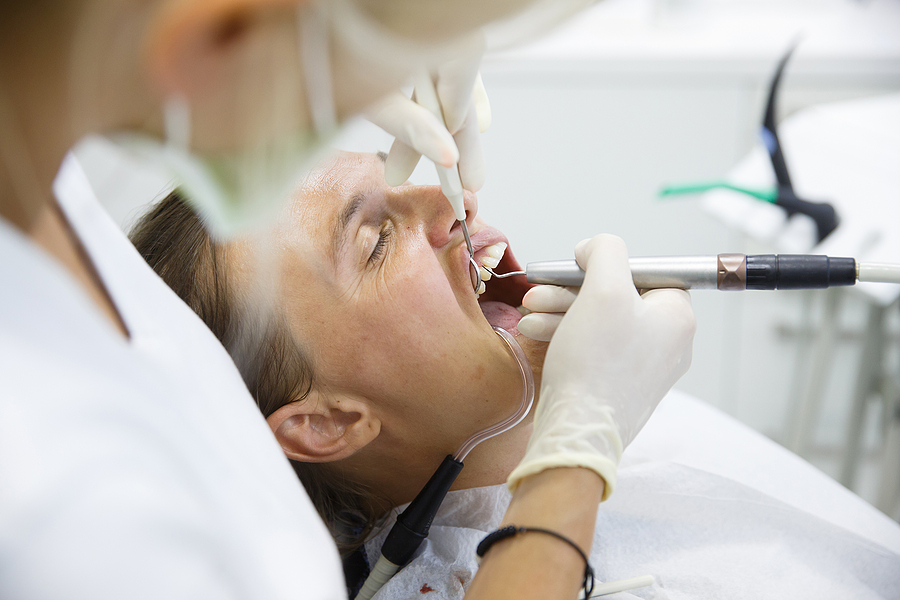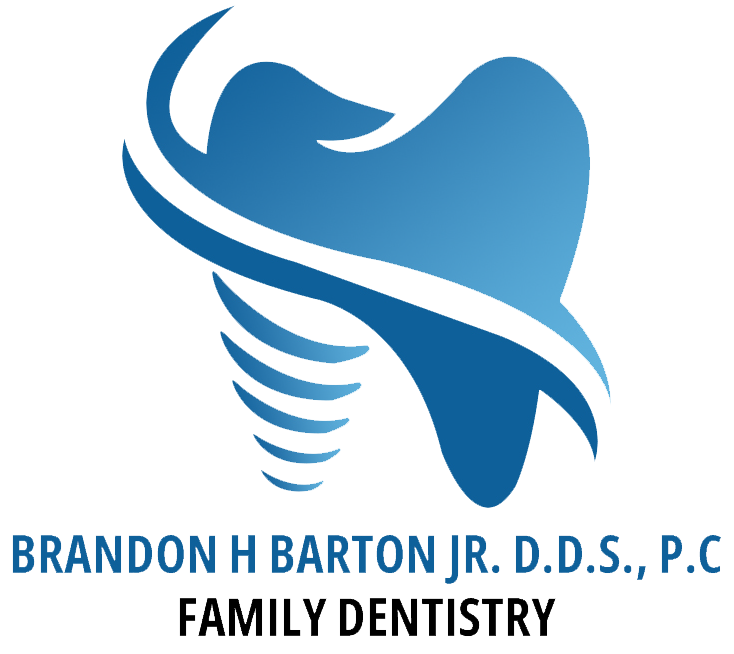Periodontal treatment is a cornerstone of comprehensive dental care, addressing gum health to ensure a strong foundation for your smile. Visit Brandon H. Barton Jr., D.D.S., P.C., at 11200 E McNichols Rd., Detroit, MI 48234, or call (313) 521-6400 to discuss your periodontal health and create a personalized treatment plan that empowers you to enjoy a confident and vibrant smile.
Your smile is one of your most valuable assets, but what happens when gum disease threatens it? Many people underestimate the importance of healthy gums. Gum disease can start subtly, often without noticeable symptoms. However, ignoring early signs can lead to serious issues down the line.
Picture this: You’re brushing your teeth and notice blood on your toothbrush. Or perhaps you experience persistent bad breath that just won’t go away. These could be crucial warning signs indicating that it’s time to pay attention to your oral health. Understanding gum disease is essential for maintaining a beautiful smile and overall well-being.
In this article, we’ll dive into the world of gum disease—how it develops, its warning signs, the risk factors involved, and why regular check-ups are vital. Plus, we'll explore when it's necessary to consult a periodontist for specialized care in Detroit, MI. Let’s get started on safeguarding those pearly whites!
Understanding Gum Disease: What is it and How Does it Develop?
Gum disease, also known as periodontal disease, begins with inflammation of the gums. This condition is primarily caused by plaque buildup—a sticky film of bacteria that forms on your teeth.
When plaque isn’t removed through regular brushing and flossing, it hardens into tartar. Tartar can only be removed with professional cleaning. As this process continues, harmful bacteria proliferate beneath the gum line, leading to infection.
There are two main stages: gingivitis and periodontitis. Gingivitis is characterized by red, swollen gums that may bleed easily. It’s often reversible with proper oral hygiene.
If left untreated, gingivitis can progress to periodontitis. At this stage, the tissue supporting your teeth becomes damaged and can result in tooth loss if not addressed promptly. Understanding how gum disease develops reinforces the importance of maintaining good dental habits for overall health.
Early Warning Signs of Gum Disease
Gum disease often starts quietly, with subtle signs that shouldn't be ignored.
- One of the first indicators is bleeding gums, especially during brushing or flossing. If you notice this happening regularly, it’s a red flag.
- Another common warning sign is persistent bad breath. This can occur even after brushing and mouthwash use. It may signal bacterial buildup in the gums.
- Swollen or tender gums are also causes for concern. Healthy gums should feel firm and look pink. Any change in color or texture might suggest an underlying problem.
- If your teeth start feeling loose or shift positions, act quickly. These symptoms could indicate advanced gum issues requiring professional evaluation and treatment from a periodontist specializing in periodontal treatment in Detroit, MI.
Risk Factors for Developing Gum Disease
Gum disease can affect anyone, but certain risk factors significantly increase your chances.
- Poor oral hygiene is a leading culprit. Neglecting daily brushing and flossing allows plaque to accumulate, paving the way for gum issues.
- Age also plays a role. As you get older, your gums naturally recede, making them more vulnerable to infection.
- Additionally, lifestyle choices like smoking or tobacco use are major contributors. These habits reduce blood flow to the gums and impair healing.
- Chronic conditions such as diabetes can complicate matters further by weakening your immune system’s response to infections.
- Hormonal changes in women during pregnancy or menopause may also heighten sensitivity in the gums, creating an environment ripe for disease development.
- Genetics cannot be overlooked; if gum disease runs in your family, you might be predisposed to it as well.
The Importance of Regular Dental Check-Ups
Regular dental check-ups are crucial for maintaining optimal oral health. These visits allow your dentist to monitor the condition of your gums and teeth, catching any issues before they escalate.
During a check-up, professional cleaning removes plaque and tartar that regular brushing might miss. This helps prevent gum disease and cavities.
Moreover, dentists can identify risk factors early on. They provide personalized advice tailored to your needs. This proactive approach ensures you stay ahead of potential problems.
Building a strong relationship with your dental care team also fosters confidence in managing your oral health. Regular visits become less daunting when you're familiar with the environment and staff.
These appointments play an essential role in ensuring long-lasting health for your smile. Prioritizing them sets the stage for better overall well-being as well as peace of mind regarding periodontal treatment options available in Detroit, MI. Contact us to learn more.
When to See a Periodontist for Gum Disease Treatment
If you notice any concerning symptoms, it’s time to take action. Bleeding gums during brushing or flossing are a clear indication that something isn’t right. Swollen or tender gums can also signal the onset of gum disease.
Persistent bad breath despite regular oral hygiene could be another red flag. This might suggest an infection or other underlying issues requiring professional attention.
Additionally, if your teeth feel loose or have shifted in position, don’t hesitate to seek help from a periodontist. These changes often indicate advanced stages of gum disease that need immediate care.
Ignoring these signs can lead to more serious complications down the line. Addressing problems early on is crucial for effective treatment and maintaining overall dental health.
Common Treatments for Gum Disease
Treating gum disease often begins with non-surgical options. Scaling and root planing is a common procedure where plaque and tartar are meticulously removed from below the gum line. This helps reduce inflammation and promotes healing.
For more advanced cases, antimicrobial treatments might be recommended. These can include rinses or gels that target bacteria in the mouth, helping to control infection effectively.
In severe situations, surgical interventions may become necessary. Flap surgery allows periodontists to access deeper areas of the gums for thorough cleaning. Bone grafts may also be performed if there’s significant bone loss due to periodontal disease.
After treatment, ongoing maintenance is crucial for keeping gums healthy. Regular follow-ups with your dental professional ensure that any signs of recurrence are caught early on. Each patient's journey is unique; personalized care plans make all the difference in achieving optimal oral health.
Prevention Tips for Maintaining Healthy Gums
Maintaining healthy gums is essential for overall oral health.
- Start with a consistent brushing routine. Use fluoride toothpaste and brush at least twice a day to remove plaque buildup.
- Flossing daily is equally important. It helps clear food particles and plaque from between teeth, where brushes can’t reach.
- Rinsing with an antimicrobial mouthwash can also be beneficial. This not only freshens your breath but helps reduce bacteria that cause gum disease.
- Don’t forget about your diet! Eating plenty of fruits and vegetables provides vital nutrients that support gum health. Foods rich in vitamin C are particularly good for maintaining strong gums.
- Avoid tobacco products. They significantly increase the risk of gum disease and lead to other serious dental issues. Regularly practicing these tips will go a long way in keeping your gums healthy and vibrant.
Conclusion
Gum disease is more than just a dental issue; it can have significant implications for your overall health. Recognizing the early warning signs and understanding the risk factors are essential steps in maintaining healthy gums. Regular dental check-ups play a vital role in prevention, allowing professionals to catch any problems before they escalate.
If you notice symptoms such as persistent bad breath, swollen gums, or bleeding when brushing, it's time to schedule an appointment with a periodontist. Early intervention through periodontal treatment in Detroit, MI, can effectively halt the progress of gum disease and protect your smile.
Remember that prevention is key. Good oral hygiene practices at home, combined with regular visits to your dentist, will help keep gum disease at bay. Take charge of your oral health today—your gums will thank you!
More Blog Posts
Contact Us
11200 E McNichols Rd.,
Detroit, MI, MI, 48234
Email: Schedule1@bartondental.net
Phone: (313) 521-6400
Working Hours
MON - THU8:30 am - 5:30 pm
FRI - SUNClosed








